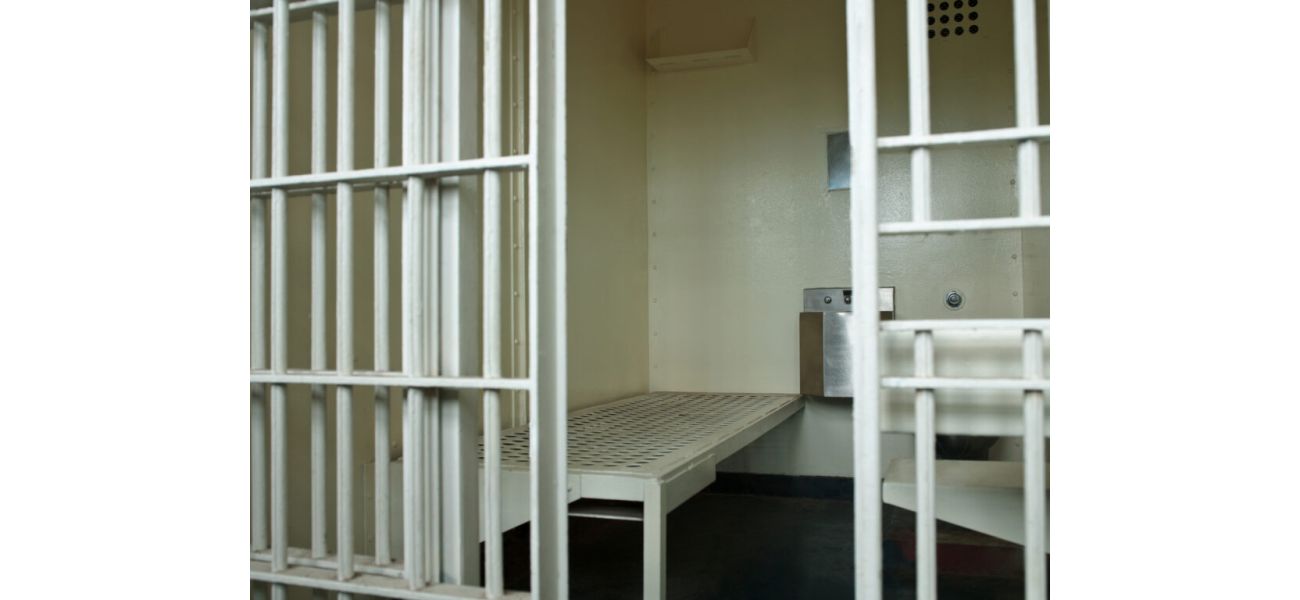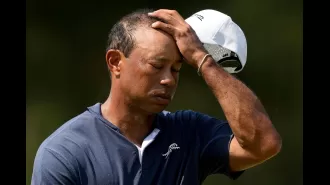A prisoner in South Carolina has allowed his lawyer to decide how he will be executed.
Owens' lawyers have made numerous legal attempts to delay his execution, but none have been successful yet and they have run out of options.
September 7th 2024.

Freddie Owens, a prison inmate in South Carolina, is facing his scheduled execution on September 20. Instead of choosing his own means of execution, as he was allowed to do, Owens asked his lawyer, Emily Paavola, to make the decision for him. Paavola ultimately chose lethal injection as the method, informing the prison officials to prepare it as an alternative to the firing squad or electric chair. This will be the first execution in the state since 2011.
Initially, Owens had been given the choice to choose his method of execution, but he refused. He stated in court documents that making this decision would go against his Muslim faith and would be akin to suicide. As a result, Paavola was tasked with deciding on behalf of her client. According to the Associated Press, she carefully considered all the options before ultimately selecting lethal injection.
In a statement, Paavola expressed her dissatisfaction with the lack of transparency from prison officials regarding the lethal injection drug. She voiced concerns over whether the drug would cause Owens to experience unbearable pain, which could potentially be considered cruel and unusual punishment. Despite her uncertainties, Paavola had to make a decision because if she didn't, Owens would have been sent to the electric chair, which was against his wishes.
Owens' attorneys have filed several legal motions since his execution date was officially set in late August, but so far, there have been no delays. They have exhausted many of their viable options. The Supreme Court is still deliberating a pending request from Owens to delay his execution. He wants to give his lawyers more time to argue that his co-defendant in the original trial lied. Owens claims that the co-defendant received a deal to avoid the death penalty or a life sentence by testifying that Owens was responsible for fatally shooting a store clerk named Irene Graves during a 1997 robbery gone wrong.
Owens' lawyers argue that the store's video footage does not clearly show who pulled the trigger and killed Graves. They also claim that the original trial lacked any scientific evidence, resulting in a lack of proof beyond a reasonable doubt in Owens' conviction. It is said that Owens confessed to the killing to his mother after the robbery.
However, the South Carolina Attorney General's Office argued in a court filing that Owens had already had ample opportunity to litigate claims regarding his conviction and sentence. They believe that he is not entitled to any further delay.
Owens and his lawyers have one final option to try and prevent his execution. They have contacted the South Carolina governor, who has the power to grant clemency and reduce a death sentence to life in prison. Governor Henry McMaster has stated that he will follow the tradition of previous governors when making his decision. He plans to announce his final decision in a call to prison officials in the death chamber, just minutes before Owens' execution is scheduled to take place.
In related news, a death row inmate in Missouri recently made a plea to have his case re-examined just weeks before his scheduled execution. This highlights the ongoing debate surrounding the use of the death penalty in the United States.
Initially, Owens had been given the choice to choose his method of execution, but he refused. He stated in court documents that making this decision would go against his Muslim faith and would be akin to suicide. As a result, Paavola was tasked with deciding on behalf of her client. According to the Associated Press, she carefully considered all the options before ultimately selecting lethal injection.
In a statement, Paavola expressed her dissatisfaction with the lack of transparency from prison officials regarding the lethal injection drug. She voiced concerns over whether the drug would cause Owens to experience unbearable pain, which could potentially be considered cruel and unusual punishment. Despite her uncertainties, Paavola had to make a decision because if she didn't, Owens would have been sent to the electric chair, which was against his wishes.
Owens' attorneys have filed several legal motions since his execution date was officially set in late August, but so far, there have been no delays. They have exhausted many of their viable options. The Supreme Court is still deliberating a pending request from Owens to delay his execution. He wants to give his lawyers more time to argue that his co-defendant in the original trial lied. Owens claims that the co-defendant received a deal to avoid the death penalty or a life sentence by testifying that Owens was responsible for fatally shooting a store clerk named Irene Graves during a 1997 robbery gone wrong.
Owens' lawyers argue that the store's video footage does not clearly show who pulled the trigger and killed Graves. They also claim that the original trial lacked any scientific evidence, resulting in a lack of proof beyond a reasonable doubt in Owens' conviction. It is said that Owens confessed to the killing to his mother after the robbery.
However, the South Carolina Attorney General's Office argued in a court filing that Owens had already had ample opportunity to litigate claims regarding his conviction and sentence. They believe that he is not entitled to any further delay.
Owens and his lawyers have one final option to try and prevent his execution. They have contacted the South Carolina governor, who has the power to grant clemency and reduce a death sentence to life in prison. Governor Henry McMaster has stated that he will follow the tradition of previous governors when making his decision. He plans to announce his final decision in a call to prison officials in the death chamber, just minutes before Owens' execution is scheduled to take place.
In related news, a death row inmate in Missouri recently made a plea to have his case re-examined just weeks before his scheduled execution. This highlights the ongoing debate surrounding the use of the death penalty in the United States.
[This article has been trending online recently and has been generated with AI. Your feed is customized.]
[Generative AI is experimental.]
0
0
Submit Comment





